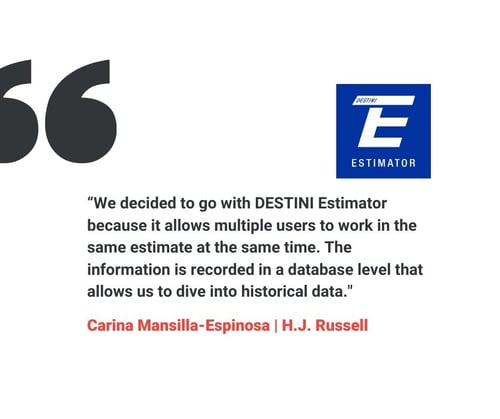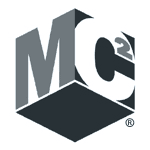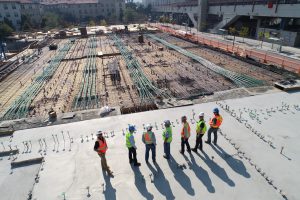How to Prevent Your Best Estimators from Leaving
Three years later, the construction labor shortage hasn’t gotten any better. In fact, some are predicting it is going to become catastrophic.
The Associated General Contractors of America reports that 90% of nonresidential contractors have openings for the skilled trades and are struggling to find qualified applicants. Over half say they also have salaried positions open.
It’s not hard to find the statistics about the construction labor shortage when it comes to the skilled trades, but let’s talk about the elephant in the room…
Your in-office people are also leaving. And you have desks that need to be filled.
A 2023 study conducted by FMI Corp found that in 2022, U.S. GCs lost between $30-40 billion in wasted productivity. And with a forecasted growth (globally) of $15 trillion and a need to fill 200 million construction jobs…to put it bluntly, you can’t afford to lose your best preconstruction professionals.
"Construction lost as much as $40B on poor productivity in 2022."
-Construction Dive
Beck Technology has over 25 years of experience in this industry and have formed bonds with estimators, directors of preconstruction, and other preconstruction professionals. These close relationships allow us to have candid conversations and we know that some of the top preconstruction people are leaving.
Why?
There are two major reasons. For one of them, there isn’t much we can do. For the second one, there is a lot a general contractor can do to keep their best estimators.

The first reason is that the construction industry has a workforce with a large percentage of retirement-age folks. There’s just not much you can do to convince those on their way out to stay. But we also know directors of precon and senior estimators are moving around and seeking new opportunities at other general contractors—taking their knowledge and connections with them.
No time is a good time to lose your best talent, but why now?
In this report, you will learn why your estimators are leaving and what you can do as a company and as a preconstruction manager to hold on to your best people.
We sat down with Gareth McGlynn, Director at Niche Specialist Staffing Partners (Niche SSP) and host of The Preconstruction Podcast to discuss the pains and problems both general contractors and candidates are facing right now in the preconstruction job market. Niche SSP is a staffing agency specializing in preconstruction services, serving both candidates and clients to find the right fit for estimators and preconstruction professionals with general contractors.
The Problem
If one of your team members has been considering moving companies in the last few years, don’t be shocked that within 12 months, they will leave your company.
Gareth says that those who considered moving jobs pre-COVID didn’t move in 2020 because of uncertainty in the industry; however, after working from home and experiencing a true life/work balance, those who wanted to leave before are now going to and are leaving.
Niche SSP sent out a poll in October 2021 asking estimators why they are quitting. The top three answers were:
- Bad company culture
- Suffering burnout
- Not getting paid enough

Forty-two percent of respondents said bad company culture was the reason for quitting. There are stacks and stacks of research on how poor company culture—things like overworking, under-appreciation, lack of flexibility, inefficient processes, disregard for new ideas…the list goes on—affects turnover rates. Multi studies show that poor company culture is the top reason for people leaving their job.
Not only is losing and replacing people expensive, but it is also difficult to recruit new talent in preconstruction.
The Solutions
Fixing Poor Company Culture
Gareth states that one of the current problems preconstruction is facing is middle management being too focused on hiring new talent instead of taking care of their current employees. One of his tips for hiring new talent is selling your corporate culture. It’s going to be a hard sell if your company culture sucks.
There are three major areas where you can improve your company’s culture:
- Flexibility
- Prevent burn-out
- Middle management
Solution: Flexibility
When we think about flexibility at work, traditionally it means not requiring all your employees to work Monday through Friday, 8 to 5. But after the last few years, we learned how to work differently, and flextime turned into flexible working arrangements.
What Are Flexible Working Arrangements?
Just as its name suggests, flexible working arrangements are…well…flexible in how you define when, where, and how one works. Certainly, the constraints of an 8 to 5 workday fall under flexible working arrangements but so does working from home or the coffee shop or the deer blind…or anywhere else you want to work.
Ways to be Flexible
- Offer a hybrid working model (some days at the office, some days at home)
- Removing the 40-hour workweek (get the job done regardless of if it takes 6 hours or 60)
- Offer unlimited PTO
- Shorten the workweek (yay 3-day weekend)
- Eliminate the 9-5 working hours (allow your people the freedom to work when they work best)
Gareth says Niche SSP receives many calls from candidates asking them if they have any remote positions available. Being extremely experienced in the industry—both AEC and recruiting, Gareth knows that full-time work-from-home positions are just not a reality in preconstruction; however, hybrid working models are.
Hybrid working models are when you offer the opportunity to work remotely a few days out of the week and require in-office the other days.
Estimators who can work from home compared to those who are in-office only are found to have a massive increase in productivity and are still able to spend ample time with family and loved ones. After experiencing a satisfying work/life balance after years of working late and on weekends, why would an estimator go back?
Zenefits, a Human Resources software provider for small and mid-sized companies reports that 75% of employees across all industries say flexible working arrangements allow them to be more productive.
To make flexible working arrangements work for you, collaborate with your human resources department to establish policies on scheduling and how to track work tasks. You will also need the technology to make working remotely possible, like team communication software, project management tools, and preconstruction and estimating software like DESTINI Estimator, which is cloud-hosted and offers team estimating.

Solution: Preventing Burnout
Burnout is a serious but often ignored issue at work. Employees are feeling it. Even middle management may be feeling it. However, middle management isn’t doing much to prevent it.
First, let’s be real about the consequences of employee burnout. Bottom line? It costs your company money. Burnout results in:
- High turn over
- Decrease in productivity
- More time off requests
- Increased mistakes and errors
- Insurance costs in medications related to depression and anxiety, and even heart disease and chronic problems related to stress
In 2019, The World Health Organization (WHO) added burnout to its International Classification of Diseases as an occupational phenomenon. There are quite a few reasons why employees suffer burnout, but the two major causes of burnout are workload and deadline pressures. Workers who experience burnout are three times more likely to be actively seeking a new position.
However, you can’t prevent burnout in your staff if you don’t know what it looks like. Burnout can appear as the following symptoms:
- Chronic exhaustion
- Negativity
- Productivity loss
- Absenteeism
- Disengagement from work
- Complaints of physical pain like muscle aches, headaches, back problems, etc.
Solution: Middle Management
Real talk—gone are the days of micromanaging and the overlord mindset of your people working for you. Solid, good leadership should be asking themselves how they can help and service their team. Gareth says, “You have to make sure you are doing your best to make sure they can do their job.” This includes providing them with the tools they need to succeed.
Gareth also says middle management should be given the power to give those who are struggling a day off, or let them leave early, or come in late…whatever it may be to help those on the team to be their best selves while at work. He says, “Manage people how you’d like to be managed.” This means that management needs to communicate with and know their team well. Know the signs of burnout and be practical about the individual capabilities and boundaries. Even the simplest things like talking and offering time off go a long way.
Studies show that time off from work improves physical and mental health, work performance upon return and helps increase time management skills, perspective, and personal growth.
One of the major culprits of burnout is being overworked. Gareth says not to overload your team with work. One of the biggest problems he sees in preconstruction teams is not having enough people. You need to get the right balance of the number of estimators on the team with how much work you need to get done.
If you need more people, hire them. If not, your preconstruction team will suffer burnout and leave.

Salary
Salary is a sensitive subject and varies widely depending on the size of your company, what region you are in, and many other factors. If you need help discussing salary and it being a barrier to keeping and hiring great preconstruction talent, reach out to Gareth. He and his team will guide you with their best practices and help you hire better-quality candidates.
What are you going to change?
Research shows that nearly half of the U.S. workforce cite poor company culture as the reason for wanting to leave or leaving a company. Bad company culture includes no growth potential, lack of appreciation, poor leadership, no flexibility, uneven work/life balance, and burnout. You don’t have to disrupt your company entirely, but you do have to make a few changes to keep your best estimators happy, engaged, and productive.
If other companies are offering a better work/life balance, flexible working structures, and remote work, you’ll need to embrace at least a couple of those changes to compete. Beck Technology is always talking about how the ‘old way’ of doing things just doesn’t work anymore. Embracing new technologies helps make better project decisions and ultimately will help build a better preconstruction team for your business.

-1.png?width=112&height=112&name=image%20(4)-1.png)















